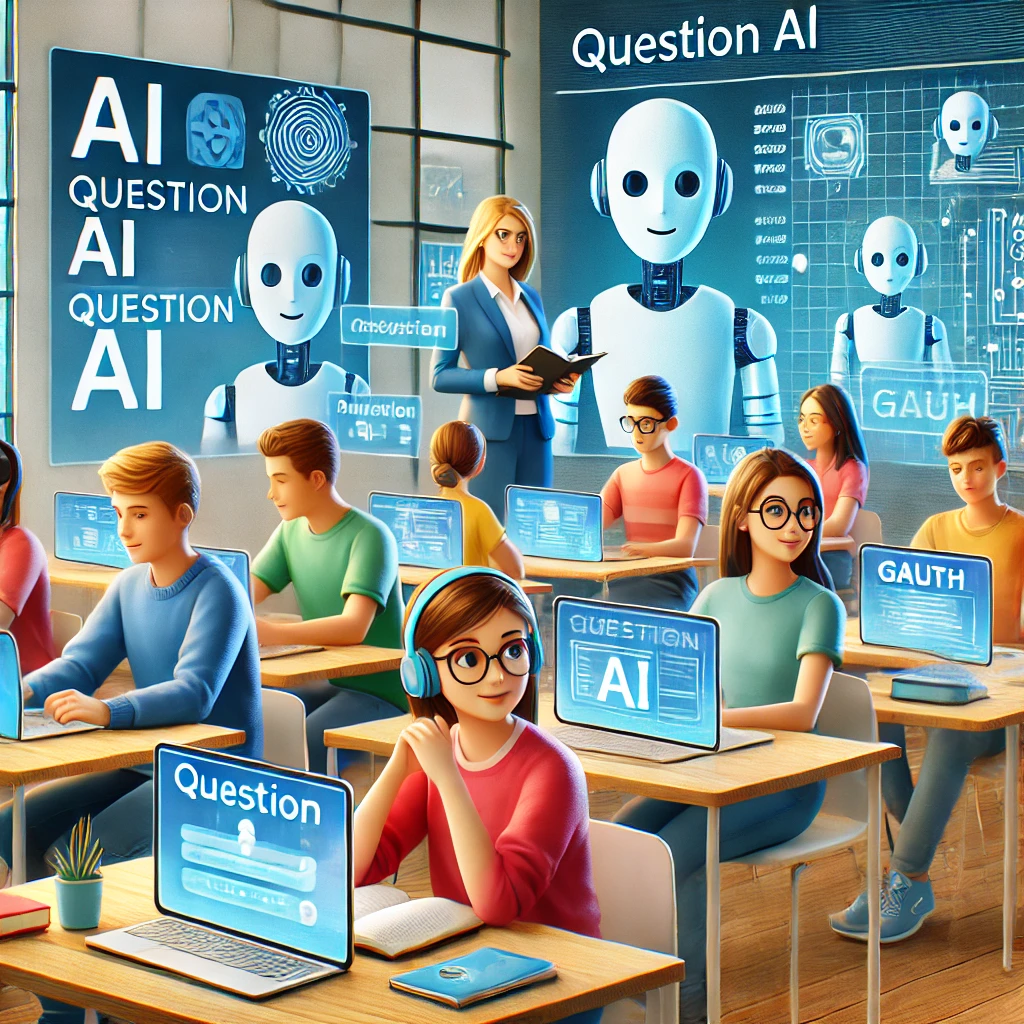The Power of AI in Enhancing Teaching and Learning Experience
AI can accelerate students’ holistic development and make teaching more fulfilling. In upcoming years, we will witness the role AI in Education. By incorporating AI-driven tools and techniques in the classroom, educators can create a more engaging, personalized, and effective learning experience for their students. This, in turn, can lead to the development of well-rounded individuals who are not only academically accomplished but also emotionally and socially intelligent (source: [Creative Commons](https://creativecommons.org/)).
Moreover, AI can empower teachers to focus on what they do best – nurturing the hearts and minds of their students. By automating mundane tasks and providing real-time feedback, AI can support teachers in their quest for educational excellence. This symbiotic relationship between AI and teachers can lead to a more fulfilling teaching experience that can ultimately drive better educational outcomes for students (source: [McKinsey](https://www.mckinsey.com/industries/public-and-social-sector/our-insights/teachers-as-transformative-educators)).
How AI Can Optimize Time Management for Teachers
AI can free up time in the classroom, allowing teachers to devote more energy to direct interaction with their students. With the increasing workload of teachers, it becomes crucial to find ways to help them manage their time effectively. A study by McKinsey reveals that teachers work about 50 hours a week, spending less than half of the time in direct interaction with students (source: [McKinsey](https://www.mckinsey.com/industries/public-and-social-sector/our-insights/teachers-as-transformative-educators)).
By leveraging AI-driven tools like automated grading, attendance tracking, and content creation, teachers can reallocate 20-30% of their time toward activities that support student learning (source: [World Economic Forum](https://www.weforum.org/agenda/2021/09/how-technology-can-help-teachers-reallocate-their-time)). This additional time can be used for more meaningful interactions with students, personalized learning, and fostering a positive classroom environment. In doing so, AI is revolutionizing the way we approach education and helping teachers focus on their most important role: shaping the minds of future generations.
Ensuring Ethical Development of AI in Education
The World Economic Forum is ensuring the ethical development of artificial intelligence, recognizing its potential to significantly impact economies, industries, and global issues. As AI becomes more deeply integrated into society, it is vital that its development aligns with the principles of equity, sustainability, and inclusivity (source: [World Economic Forum](https://www.weforum.org/centers/global-ai-action-alliance)).
One of the initiatives by the World Economic Forum is the crowdsourced digital platform designed to deliver impact at scale, called “Crowdsource Innovation” (source: [World Economic Forum](https://www.weforum.org/platforms/crowdsourced-innovation)). This platform encourages individuals, organizations, and governments to collaborate on AI projects that focus on addressing global challenges. Through such initiatives, the World Economic Forum is playing a crucial role in ensuring the ethical development of AI and its positive impact on education and other sectors of society.
Insights from the Future of Jobs Report 2023
The Future of Jobs Report 2023 sheds light on the importance of integrating AI and technology into education systems. As the job market evolves, a skills-first approach is essential to prepare students for the rapidly changing world of work (source: [World Economic Forum](https://www.weforum.org/reports/the-future-of-jobs-report-2023)). By incorporating AI in the classroom, educators can better adapt their teaching methods to address the emerging skills gap and equip students with the knowledge and abilities they need to thrive in the future.
In addition to fostering a skills-first approach, public figures have called for inclusive growth at Growth Summit 2023. Emphasizing the importance of equity in education, these leaders are advocating for a more inclusive, sustainable, and equitable global agenda (source: [Growth Summit 2023](https://www.growthsummit2023.org/)). By integrating AI ethically and responsibly into education, we can support these efforts and ensure that no student is left behind.
Supporting the Health Worker of the Future
Global health systems are changing, and AI can play a significant role in supporting the health worker of the future. In a recent discussion, three experts explained how we can leverage technology to achieve health equity and improve healthcare delivery (source: [Healthcare Experts Panel](https://www.healthcareexpertspanel.com/)).
As health systems worldwide strive for better patient outcomes, AI can assist in streamlining workflows, improving diagnostics, and enhancing patient care. By integrating AI-driven tools and methodologies, healthcare professionals can focus on providing personalized, high-quality care while reducing the administrative burden. In the context of education, teaching future health professionals to harness the power of AI will be crucial in equipping them with the skills needed to navigate the evolving landscape of global health systems.
In conclusion, AI has the potential to revolutionize education, empowering teachers and promoting holistic development in students. By embracing AI responsibly and ethically, we can create a more equitable and sustainable future for all. As we move forward, it is essential to continue exploring innovative ways to integrate AI into the classroom, ensuring that we nurture the hearts and minds of future generations.


